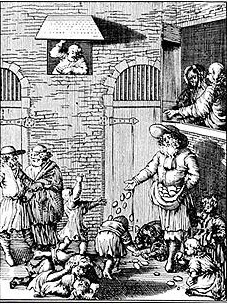Simchat Torah is one of the more special Israeli holidays, and demonstrates the Jewish people’s ongoing love for and connection to G-d’s Word.
By Rachel Avraham
As we speak, Jews across the world are preparing to celebrate Shemini Atzeret and Simchat Torah. Shemini Atzeret, or the 8th Day of Assembly, is the closing festival after the 7 days of Sukkot mentioned in Leviticus 23. Simchat Torah, the Joy of Torah, is a joyous occasion marking the fact that the Jewish people have finished reading the Torah for this year and start reading it anew for the year to come, demonstrating that the Torah is a cycle that is part of the daily life of the Jewish people.
In Israel, Shemini Atzeret is attached to Simchat Torah as one holiday. However, in the Diaspora, it’s celebrated as a separate holiday. Nevertheless, even though Israelis celebrate Shemini Atzeret and Simchat Torah as one holiday, the Talmud stresses that Shemini Atzeret is a holiday in its own right. According to Leviticus 23:36: “For the seven days of Sukkot, you shall bring a fire offering to G-d; on the eighth day, it shall be a holy convocation for you.”
Rashi in his commentary of Leviticus 23:36 explained that when there was a Temple in Jerusalem, the Jewish people brought 70 sacrifices on behalf of all humanity over the course of seven days during Sukkot. On Shemini Atzeret, the Jewish people however only bring one sacrifice to G-d on behalf of themselves. According to Rashi, “This is analogous to a king who invited his sons to feast with him for a certain number of days and when the time came for them to leave, he said: ‘My sons! Please, stay with me just one more day; it is difficult for me to part with you!’”
Rabbi Yaakov Wolbe argued, “If it is difficult for the king to part ways with his children on one particular day, what happens the next day? Won’t it be equally difficult for the king then, too? Isn’t this just kicking the can down the road?” According to him, what happens on Shemini Atzeret and Simchah Torah is that G-d and the Jewish people “are forging a bond that’s going to endure even when we go our separate ways. The connection forged at this time is so deep that it can withstand the relative distance between the Jewish people and G-d post-holiday.”
In the Jewish Diaspora, where holidays usually last two days, one day is for the Shemini Atzeret celebration and the next day marks Simchat Torah. The root of this tradition is that the Jewish people always seek to celebrate their holidays in unison with Israel, even if they are in different time zones. For this reason, Jews in the Diaspora celebrate holidays for two days that are only celebrated for one day in Israel. However, in Israel, the two holidays combine into one, as here in the Holy Land we do not have the luxury of having two days to make such a separation.
For this reason, celebrating Simchat Torah in the Holy Land is a bit different than it is in the Diaspora. Here, we start out by lighting candles and holding a special service where everyone dances with the Torah scrolls in the synagogue on the eve of Shemini Atzeret. Afterwards, Israelis usually have a special holiday meal. For this meal, it is not obligatory that Israelis eat in the Sukkah. However, some still choose to do so.
The following day, Israelis usually have a BBQ, where they serve kebabs, grilled chicken, steak, spicy hot dogs, and chicken wings. Special salads such as eggplant with tahini, spicy tomato salad, spicy pepper salad, hummus, matboucha (spicy tomato sauce), umba (Iraqi mango sauce), cherche (Libyan pumpkin salad), cabbage salad, and Israeli salad are generally served as well, together with homemade pita bread and Sephardic red rice. Then, the following evening, Israelis usually begin dancing in the streets with their Torah scrolls and candies are thrown into the air. The children typically run to gather the candies, as music is blaring in the background.
It is considered a mitzvah (good deed) in Judaism to celebrate on Shemini Atzeret and Simchat Torah. Jews are to be joyful about the atonement that they have obtained for the upcoming year, as the fate of every person is determined for the next year after the conclusion of Sukkot. In Orthodox Judaism, all work is forbidden on Shemini Atzeret, as is driving, writing, and using electricity. Cooking is performed via a candle that is lit before the start of the holiday.
Once Simchat Torah begins in the evening, Israelis are once again permitted to use electricity in accordance with Orthodox Judaism. Simchat Torah is a joyous occasion as it marks the fact that the Jewish people have finished reading the Torah for this year and will start reading it over again for the next one.
The meaning of the holiday literally is “rejoicing in the Torah.” Across Israel, Jews hold great celebrations where they dance with the Torah scrolls to festive music. Children wave special Simchat Torah flags. It is a happy, joyful and special holiday that highlights how much the Jewish people are attached to the Torah and are looking forward to another year of Torah study.






